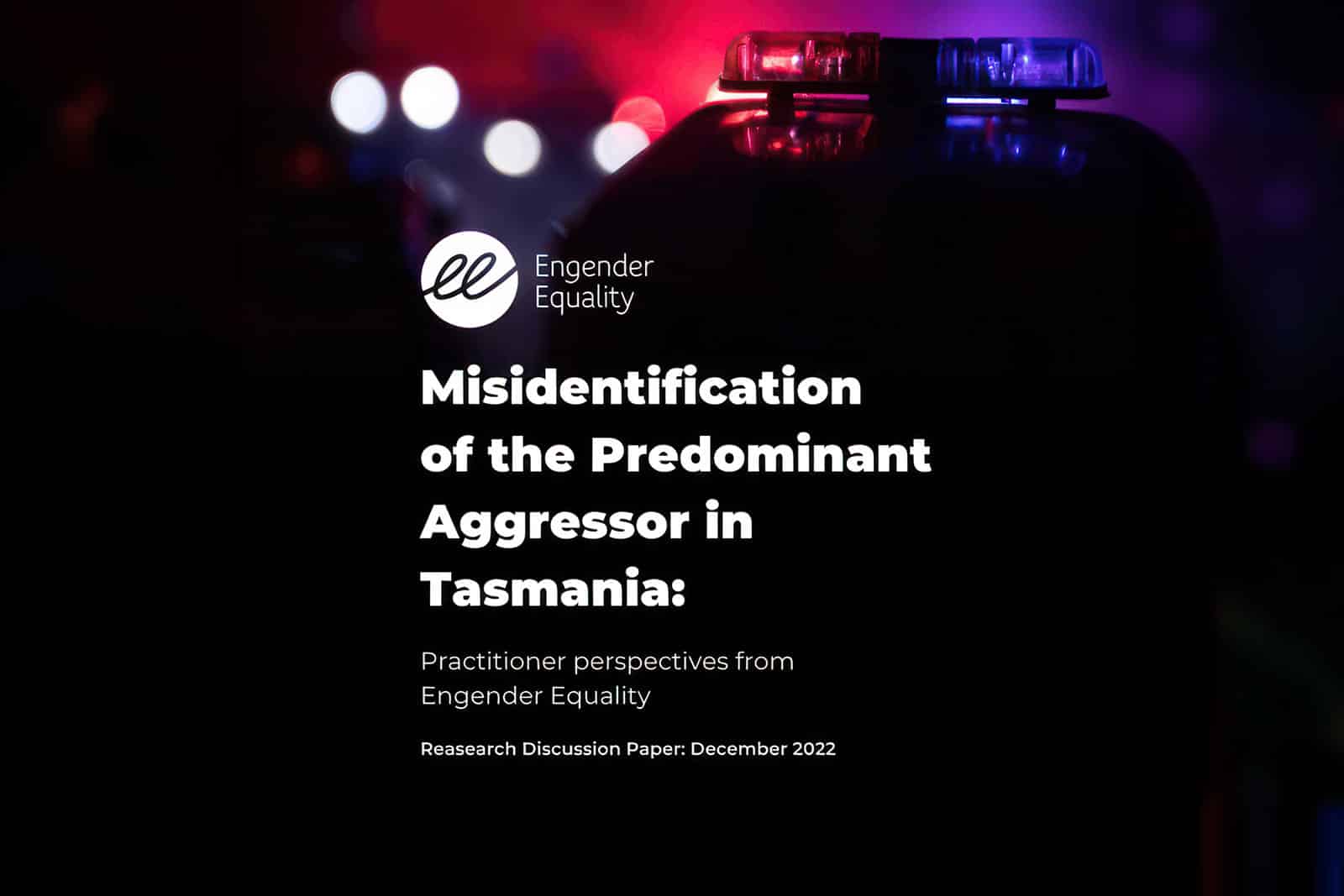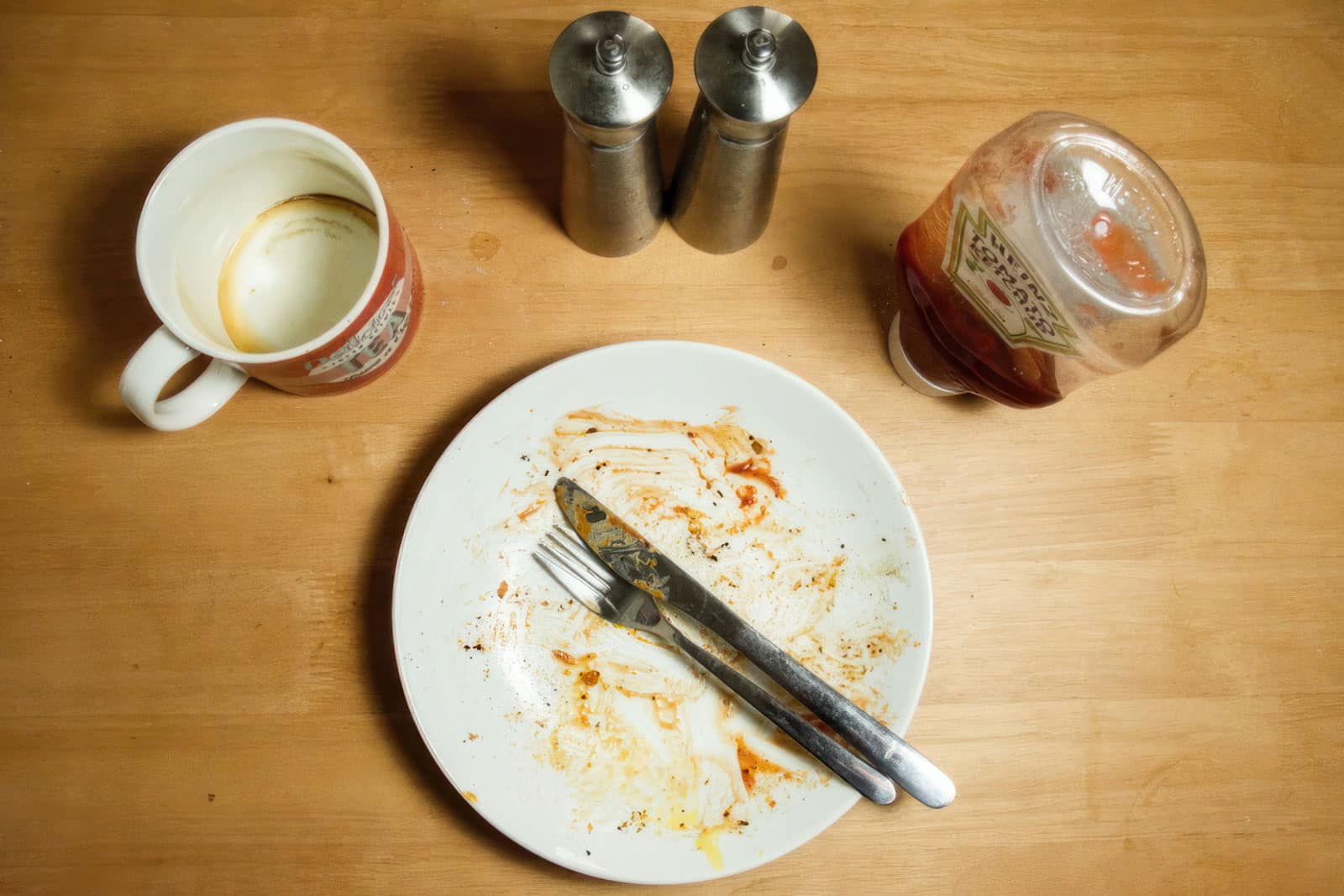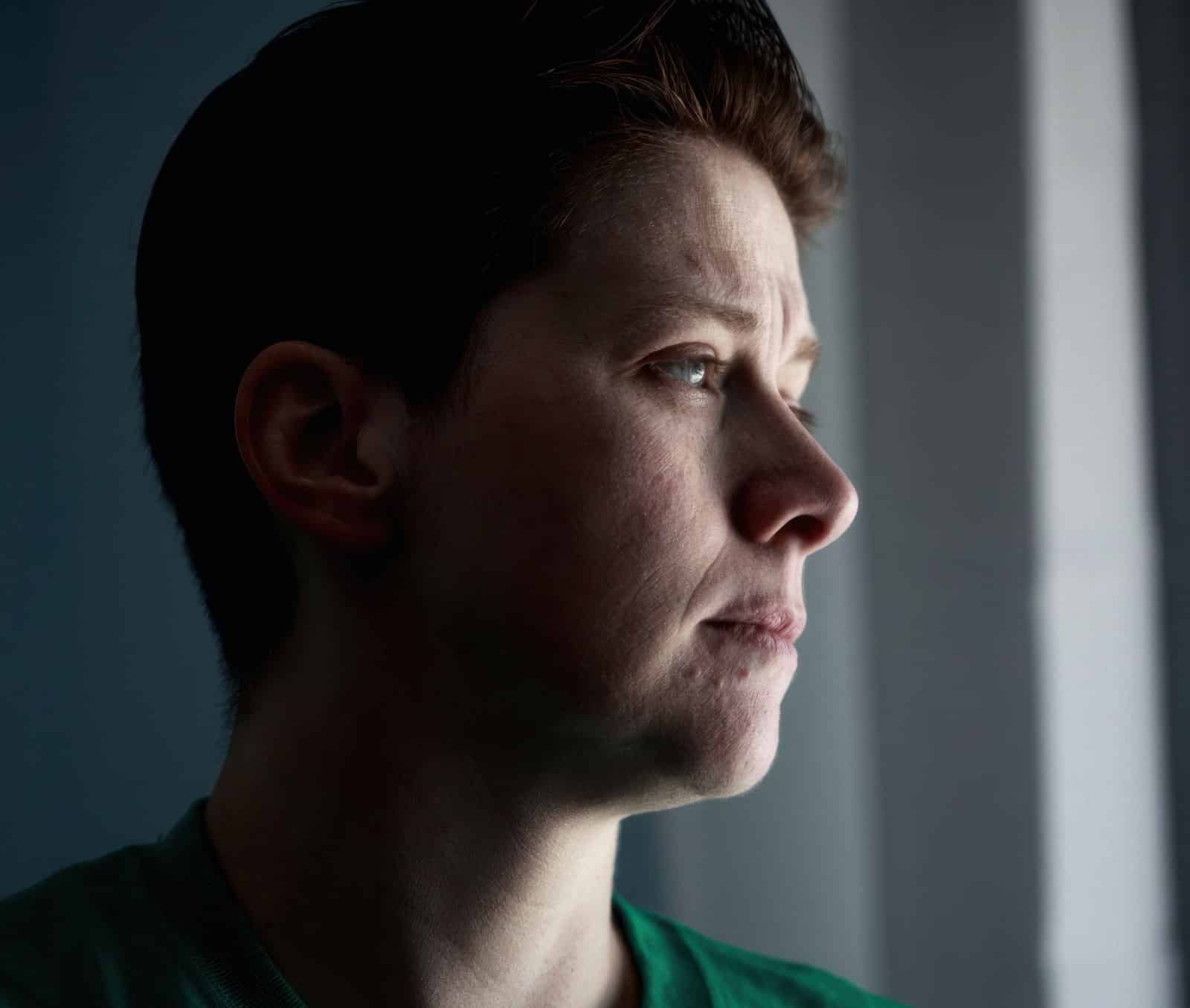Media Release - Systemic failures devastate lives of family violence victims
MEDIA RELEASE – For immediate release: 17 October 2024
Systemic Failures Devastate Lives of Family Violence Victims
Forum on Systems Abuse in Family and Sexual Violence
Hobart, TAS – The Southern Domestic Violence Coordinating Committee (DVCC) is hosting a crucial forum on systems abuse in family and sexual violence. This event will shed light on the way people who use abuse take advantage of systems and manipulate formal processes to continue their litany of abuse and intimidation.
The forum draws on victim-survivor informed case studies to illustrate the devastating effects of the abuse and discuss ways to improve the support and protection systems in Tasmania.
Systems abuse occurs when the very systems designed to protect and support survivors of family and sexual violence are used to perpetrate harm, often through misidentification, lack of coordination, and a gross misunderstanding on the presentation of family violence. “When our systems fail to understand what family violence actually is, we find people who use abusive behavior manipulate the systems creating a terrible and insidious problem that exacerbates the trauma experienced by victim-survivors. When the systems meant to protect victim-survivors fail, it not only undermines their wellbeing, safety and recovery but also erodes their trust in the justice system,” said Alina Thomas, CEO of Engender Equality.
The forum will bring together key stakeholders, including survivors, advocates, service providers, and policymakers, to address the critical issue of systems abuse. Featured speakers include Zoe Rathus AM, Senior Lecturer at Griffith University Law School, who has extensively published and presented on women and the law, with a focus on the family law system and the impact of domestic and family violence on women and children. Also joining is a representative from the Federal Family Violence Commissioner’s Office, along with Sara Stevens, developer of a comprehensive four-day Family Violence Screening and Assessment training program, now mandated for staff at the Safe Families, Safe Kids Advice and Referral Line and Child Safety Service within the Department for Education, Children and Young People in Tasmania.
The day will cover several critical topics, including the impact of systemic failures on survivors of family and sexual violence, strategies for improving coordination and communication among support services, the role of policy and legislation in addressing systems abuse, and insights from frontline practitioners and researchers.
“Addressing systems abuse is crucial for ensuring that our response to family and sexual violence is effective and compassionate. We must listen to the experiences of victim-survivors as their expertise is essential to our understanding. Then, we must work together, with a whole-hearted commitment to closing the gaps in our support systems and providing a coordinated, survivor-centered approach,” added Ms. Thomas.
The event will take place on Monday, 21 October 2024, at 10:00AM at the Moonah Arts Centre.
Contact: For all media enquiries, please contact: Alina Thomas CEO, Engender Equality
E: ceo@engenderequality.org.au M: 0438 788 291
Photos and interview opportunities are available following the event, 21 October at 1pm – Moonah Arts Centre.
Paper - 2023 Research Discussion Paper - Misidentification of the Predominant Aggressor in Tasmania
This paper explores how misidentification of the predominant aggressor – also known as ‘misidentification of the primary aggressor’ – occurs when victim-survivors are inaccurately determined to be the predominant aggressor in the investigation into family violence offending. The impacts of this on victims-survivors are described and analysed through the presentation of lived experience case studies.
Submission to the Inquiry into Tasmanian Adult Imprisonment and Youth Detention Matters - March, 2023
This submission promotes calls for a gendered lens to be applied to imprisonment and detention to consider the unique experiences of women in the Tasmanian Prison System.
Discussion Paper Launch - Misidentification of the Predominant Aggressor in Tasmania
For immediate release: 28 February 2023
The injustice of reporting family violence – Engender Equality to release research discussion paper on the misidentification of the predominant aggressor by family violence respondents
- A study by Women’s Legal Service NSW reported that two-thirds of women who had been identified as primary aggressors were victim survivors.
- A study by Women’s Legal Service Victoria reported that one in ten women who were victim-survivors had been misidentified as primary aggressors.
- Tasmanian has a unique legislative approach to family violence which may contribute to misidentification.
Following a public forum held in 2022, Engender Equality is holding an event at Government House Hobart on Thursday 2nd March, 2023 to launch their research discussion paper on the misidentification of the predominant aggressor in Tasmania.
Engender Equality is releasing a research discussion paper on the misidentification of the predominant aggressor in Tasmania with an event at Government House Hobart to coincide with International Womens’ Day. This follows the successful public forum held in 2022 that provided the opportunity for community representatives and government representative to talk about the issue.
The research discussion paper Misidentification of the Predominant Aggressor in Tasmania: Practitioner Perspectives from Engender Equality provides important insight through the perspectives of family violence practitioners into the experiences of victim-survivors of family violence who have reported to police but have been wrongly identified as the aggressor in the relationship.
Misidentification of predominant aggressor occurs when the police or other responder inaccurately determine who the person using abusive behaviour is in a family violence relationship.
Previous research has shown that predominant aggressors are more likely to use violence for abuse and control, whereas victim-survivors are more likely to use violence in retaliation or self-defence. In response to a report of family violence, police may misinterpret these nuanced dynamics, leading them to misidentify the victim-survivor as the predominant aggressor.
“There is a growing body of research to suggest that women are being misidentified as predominant aggressors in increasing numbers in Tasmania. Women who have been misidentified may face criminal charges, poverty, removal of children, loss of reputation and employment and re-traumatisation through the system that is meant to be there to protect them. Misidentification may be influenced by systems abuse (perpetrator using the system to use power and control) and incident-based policing. It is clear that the impacts are broad and far-reaching and influence the recovery of a victim-survivor in many ways” Ms Thomas explained.
“We are hoping that this paper will assist police and stakeholders who provide family violence support to gain greater insight into the issue and encourage policy and legislation to be reviewed to reduce the number of victim-survivors who are mis-identified. Engender Equality is very passionate about advocating to address this problem and hope that our research leads to change.” Ms Thomas added.
A full copy of the report will be made available the website engenderequality.org.au after the event.
Attendance at the event is by invitation only but there will be a media opportunity on the lawns of Government House after the event which runs from 12:30 – 2:00 pm.
The dangerous form of abuse around food that often goes unnoticed
By Kellie Scott
Posted to ABC Everyday online 7/02/23
“I was constantly run off my feet so I could never take a moment to myself for anything”. – Nova, late 20s
Food control is a form of coercive control that is often invisible and potentially life-threatening, explains Alina Thomas, the CEO of Engender Equality.
Food control was just one aspect of abuse Nova experienced in the relationship she has since escaped.
“If he didn’t want to eat what I was making, he would demand I leave to get something else for him,” Nova, in her late 20s, says.
“He’d say he’d watch what I was cooking, then allow it to burn while I was gone so … me and my children would have nothing”.
Other times, he would give food set aside for her children to his pet dogs, or take it out of the fridge so it went bad.
Nova’s ex would steal money she needed for groceries, make negative comments about her body, stop her from exercising, and criticise her food choices.
He would also make demands around food that impacted her ability to complete basic daily tasks, like showering.
“Every time he wanted a coffee or something to eat, he would have me drop whatever I was doing to make it for him. Like stopping me from bathing, or [he would] wake me up in the middle of the night to go make him what he wanted”.
Deborah thought her abuse was normal - but a late autism diagnosis changed everything
By Megan Oliver, with photography by Maren Preuss
Posted on ABC online 09/01/23 – 5:10am (Updated 9/01/23 – 11:33am)
All I ever learned was that it was my fault. I had some dark fault inside me where I was always getting it wrong. – Deborah Hunter
Deborah Hunter always knew she was different from those around her — she communicated differently and struggled socially, but didn’t know why.
“I took it to be some kind of intrinsic naivety. I never seemed to get it right,” she said.
“Even when I tried to be a ‘good girl’ and behave as appropriate or expected, I was forever getting things wrong.”
The emotional and physical abuse started in Deborah’s family home, but she didn’t realise it was abuse.
Submission on the National Principles to Address Coercive Control - November, 2022
Engender Equality and the lived-experience group, Advocates for Change, give feedback on the the development of the National Principles to Address Coercive Control.
Submission to the third Tasmanian Family and Sexual Violence Action Plan - May, 2022
Tasmania requires a new Family and Sexual Violence Action Plan that is both strategically directed towards, and sufficiently resourced to deliver, community-based prevention and response activities that meet the needs of Tasmania’s highly dispersed, largely rural, socially and economically disadvantaged population.
Tasmanian woman shares experiences of family violence ahead of election
By Bec Pridham
Posted to The Examiner online 10/04/22 – 3:30am
Charlotte’s* first encounter with family violence was as a child. Living with incessant bullying and harassment in her family home, she was forced to flee in the middle of the night at age 16.
The violence left behind a devastating legacy that followed her into her intimate relationships – the trauma, coupled with her disability, leaving Charlotte vulnerable.
“It’s often expressed that autistic people lack empathy. You could describe that as a disability in communication. We are unable to perceive simple conversational cues, and this causes people to be uncomfortable. It causes misunderstandings both ways. It causes a lot of conflict,” she said.
“Relationship after relationship the men learned to manipulate [me], a person with autism, to manipulate to the point of an autistic meltdown, and they then claimed ‘see, look what you made me do’.”
“Then they punch you.”
Charlotte met the father of her son at a young age.
She fell pregnant early into the relationship, which left her feeling locked in.
“I had a strong sense of needing to survive. If it hadn’t been for my son, I wouldn’t have”.
Her partner was violent and coercive, taking her car keys so she could not escape, controlling how she spent her money, forcing all the child caring responsibilities upon her.
“My partner broke my neck and (according to him) it was my fault. And once it happens time after time after time after time, you’re convinced that it’s your fault.”
She never recovered from the incident, left physically disabled and in constant pain.
“I didn’t leave him until my son was 16 months old.”
While each victim’s story is nuanced and incredibly complex, Charlotte’s escape from violence is somewhat of an anomaly.
She did not leave. He did.
“I wasn’t going to leave. I wasn’t going to run again.”
“It’s very shameful to admit to domestic violence and so you don’t. And so I’ve suffered in silence. I took it to be my fault and tried to be a good girl. People leaving abusive relationships shouldn’t be made to think it’s their own fault”.
Charlotte said she was “lucky” to have a close circle of friends she could lean on. They began inviting themselves to dinner at her home every evening, telling her partner he needed to leave. After three months, he succumbed to the pressure, and moved out.
Charlotte did not receive her autism diagnosis until later in life, when her complex post traumatic stress disorder rendered her unable to manage her life.
“I was forced to begin to address the abuse in my adolescence in the family home, the reason I had to leave, why it came to that. If I’d only known earlier, if there was only enough support … I cannot stress how vital that diagnosis is.”
Charlotte said Australia’s family violence situation has made little progress since she left decades ago.
“People who are suffering from gaps in equality, people that are leaving violent and abusive relationships or families, are still at a disadvantage as much as they were 30 years ago. They really are. And this is both in terms of society acceptance and lack of support”.
“It’s very shameful to admit to domestic violence and so you don’t. And so I’ve suffered in silence. I took it to be my fault and tried to be a good girl”.
“People leaving abusive relationships shouldn’t be made to think it’s their own fault.”
It is a message resounding from those working in the family violence sector, who point out that raising the profile of women is desperately needed if Australia is to really address the issue.
Women’s Legal Service Tasmania chief executive Yvette Cehtel said Australia’s focus needed to be on primary prevention, not just early intervention and response.
“If we want to change attitudes and the way people behave, then we need to get in early and we need to do it before there’s a problem and we need to have nuanced conversations with all of our young people about what respectful behaviour looks like,” she said.
Ms Cehtel said she was looking at the government to implement a positive duty on employers to prevent sexual harassment and promote gender equality.
She said we should understand family violence as being on the extreme end of a continuum of inequality.
“The attitudes and the behaviours that allow unequal treatment of women is all along that continuum,” she said.
“If we’ve got one in three people at work being sexually harassed, we’ve got a massive problem with equality in the country.”
Ms Cehtel referred to the Kate Jenkins report, Set the Standard, which lists diversity, equality and inclusion as requirements of a safe and respectful workplace.
Launceston White Ribbon Committee secretary Carol Fuller said there was a difference between equality and equity.
“Women aren’t the same as men, so they have different needs. And to live a successful life and contribute all that we can to society, we need equity,” she said.
“Equity means that because we’re different, we need different systems. We need different processes that allow equality to happen.”
Ms Fuller said the government focused much of its resources on supporting people in danger, but needed to look at the bigger picture.
“What I would like to see, what White Ribbon would like to see, is stepping back and stopping it before it even starts,” she said.
“You can’t do that immediately, it’s a long-term drawn out changing of societal attitudes.”
Ms Fuller pointed to harmful gender stereotypes, sexist language and jokes, unequal laws and unequal pay as factors that might seem innocuous, but lay the foundation for violence.
She wanted to see the government pour the same efforts it did into changing societal attitudes to smoking, using the same consistent, prolonged and broad campaigning.
“I don’t think the government can do anything immediately in terms of stopping it … there’s no magic wand. This is going to take generations. But we’ve got to start now,” she said.
The state government launched the Safe Homes, Families, Communities plan in 2019, investing $26 million over three years in responding to and preventing family and sexual violence.
In March, the Commonwealth committed $20 million to electronically monitor high-risk perpetrators deemed high-risk.
Charlotte has been working through her PTSD with professional help.
She has also become an advocate for change, helping other women.
“If people know that someone like me has pushed through it, then anyone can do it,” she said.
Submission to the Tasmanian Women's Strategy 2022-2027 - April, 2022
In many ways the draft Strategy achieves its objectives in reflecting critical life domains in which women’s experiences are far from equal – in relation to safety and economic security, for example. In our assessment, however, it falls short of translating these objectives into realisable outcomes for the women we know and work alongside across Tasmanian communities.






